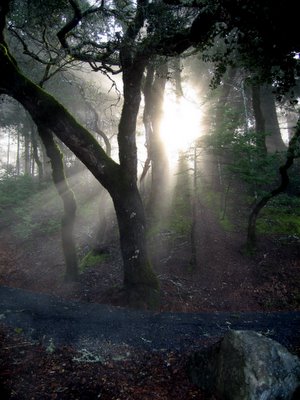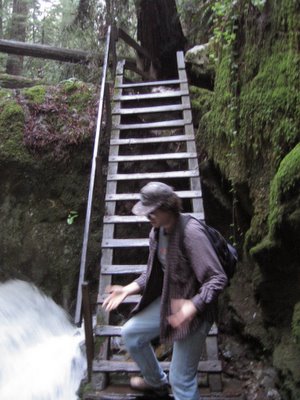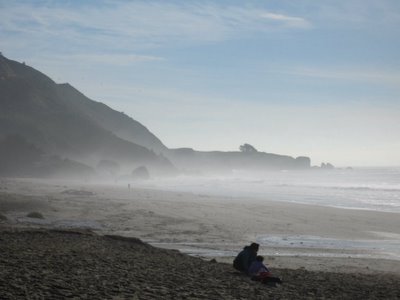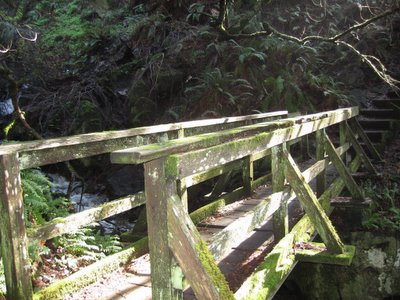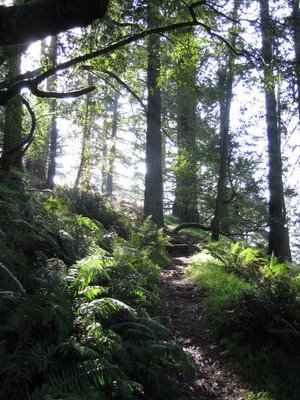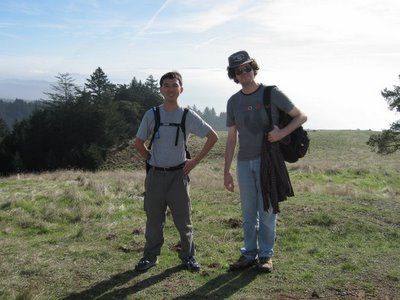This week's New Yorker has a great article about Philip Pullman, including his opinion about Tolkein, C.S. Lewis, and the themes behind His Dark Materials. The entire article is worth reading, and Pullman makes great points about Tolkein & Lewis' works.
His books have been likened to those of J. R. R. Tolkien, another alumnus, but he scoffs at the notion of any resemblance. “ ‘The Lord of the Rings’ is fundamentally an infantile work,” he said. “Tolkien is not interested in the way grownup, adult human beings interact with each other. He’s interested in maps and plans and languages and codes.” When it comes to “The Chronicles of Narnia,” by C. S. Lewis, Pullman’s antipathy is even more pronounced. Although he likes Lewis’s criticism and quotes it surprisingly often, he considers the fantasy series “morally loathsome.”
In Pullman’s view, the “Chronicles,” which end with the rest of the family’s ascension to a neo-Platonic version of Narnia after they die in a railway accident, teach that “death is better than life; boys are better than girls . . . and so on. There is no shortage of such nauseating drivel in Narnia, if you can face it.”
Sexual love, regarded with apprehension in Lewis’s fiction and largely ignored in Tolkien’s, saves the world in “His Dark Materials,” when Lyra’s coming of age and falling in love mystically bring about the mending of a perilous cosmological rift. “The idea of keeping childhood alive forever and ever and regretting the passage into adulthood—whether it’s a gentle, rose-tinged regret or a passionate, full-blooded hatred, as it is in Lewis—is simply wrong,” Pullman told me.
Monday, December 26, 2005
Sunday, December 25, 2005
Christmas Eve Steep Ravine/Matt Davis
With the forecast for weather in the mid-60s, we had to do a hike what I consider the prettiest hike in the Bay Area: Steep Ravine/Matt Davis. Usually, we do Matt Davis/Steep Ravine from Pantoll Ranger Station, but with heavy fog at the start, we opted for the reverse, descending Steep Ravine and coming up Matt Davis. This was the most beautiful I've ever seen the area. As a passing hiker said, "Nothing but scenery and more scenery. You're going to hate it!" Coming up Matt Davis was a surfacing out of the woods into gorgeous open space.
We shot well over 100 pictures on this hike that day, and you can see the selected shots below.
We shot well over 100 pictures on this hike that day, and you can see the selected shots below.
Friday, December 23, 2005
Before Sunrise/Before Sunset
This pair of movies needs to be rented/bought/watched as close to being back to back as you can. (Neither is very long, so watching both won't be a big time sink) Watch Before Sunrise first. This pair of movies come highly recommended.
The first thing that strikes me about the movies is the question, how can movies that are essentially 2 people walking and talking work at all? But when you're done watching the movie, you realize that many of the most intense moments of your life have been just the two of you, walking or talking (or maybe in my case, cycling and talking), so maybe that question should never have come up in the first place.
Before Sunrise deals with the moment of the chance encounter --- the accidental meeting of someone, making a connection, and then taking a risk and getting to know them. Jesse & Celine meet on a train, and Jesse persuades Celine to make an unplanned stop with him in Vienna to keep him company in the afternoon and evening before he has to catch a plane. The two get to know each other, and what starts out as a chance encounter turns into something magical.
What strikes me about both movies is that they are hyper-real. Before Sunset is shot almost entirely in real time, with no skipped moments. There are moments in my life when I've felt every moment in complete intensity (I remember an interview when I was 16 with a board of 6 or 7 people who were to determine whether I would get a scholarship), and the movies reflect those moments fluidly. I remember the arm wrapping move as Julie Depry puts her arms around Ethan Hawke vividly in Before Sunrise, and there's a moment in the van when she reaches out to touch him but draws back as he turns to look at her --- those moments in the film are so real that they remind me of certain moments in my life, no doubt as the principals intended.
Before Sunset is about the "what if". What if you had made choices differently? What if when you were young and stupid you would have been just a little less stupid? By aging the actors naturally (9 years pass between the first and second movies) there is no contrivance at all in the changes over the years. I especially enjoyed the expression one of the characters made in saying, essentially, "When I was young I had so many choices I threw them away without realizing the preciousness of what I had thrown away." Yet the movies aren't full of regrets, and each movie ends with a question mark.
OK, I've worked very hard not to spoil the movies for you. Go watch it, and don't read any other reviews before watching them. Watch the movies with your significant other, if you have one. It will provide good conversation.
The first thing that strikes me about the movies is the question, how can movies that are essentially 2 people walking and talking work at all? But when you're done watching the movie, you realize that many of the most intense moments of your life have been just the two of you, walking or talking (or maybe in my case, cycling and talking), so maybe that question should never have come up in the first place.
Before Sunrise deals with the moment of the chance encounter --- the accidental meeting of someone, making a connection, and then taking a risk and getting to know them. Jesse & Celine meet on a train, and Jesse persuades Celine to make an unplanned stop with him in Vienna to keep him company in the afternoon and evening before he has to catch a plane. The two get to know each other, and what starts out as a chance encounter turns into something magical.
What strikes me about both movies is that they are hyper-real. Before Sunset is shot almost entirely in real time, with no skipped moments. There are moments in my life when I've felt every moment in complete intensity (I remember an interview when I was 16 with a board of 6 or 7 people who were to determine whether I would get a scholarship), and the movies reflect those moments fluidly. I remember the arm wrapping move as Julie Depry puts her arms around Ethan Hawke vividly in Before Sunrise, and there's a moment in the van when she reaches out to touch him but draws back as he turns to look at her --- those moments in the film are so real that they remind me of certain moments in my life, no doubt as the principals intended.
Before Sunset is about the "what if". What if you had made choices differently? What if when you were young and stupid you would have been just a little less stupid? By aging the actors naturally (9 years pass between the first and second movies) there is no contrivance at all in the changes over the years. I especially enjoyed the expression one of the characters made in saying, essentially, "When I was young I had so many choices I threw them away without realizing the preciousness of what I had thrown away." Yet the movies aren't full of regrets, and each movie ends with a question mark.
OK, I've worked very hard not to spoil the movies for you. Go watch it, and don't read any other reviews before watching them. Watch the movies with your significant other, if you have one. It will provide good conversation.
Best books of 2005
It's the end of the year, and it doesn't look like I'm going to get much reading done in the last few days (plus, my queue is strangely empty) , so I'm going to name the best books I read this year:
Best Book Overall
I think the book I learnt the most from was Climate Crash, which discusses abrupt climate change as the major theory for how Earth's climate behaves. The theory is non-intuitive, backed up by pretty solid evidence, and the book itself is well written. This book narrowly edged out Collapse, which is an important book as well, but not as surprising as Climate Crash for a cynic like me. Yeah, so societies of humans have always been short-sighted and ego and selfishness have brought down entire civilizations. Tell me something I didn't know about humans.
Best Fiction
I really have to say this was not a good year for fiction. I find that the best fiction I read was A Fire Upon The Deep, which unfortunately was a book I'd already read before and was revisiting. Is there not a lot of great new fiction out there, or am I missing something? For fiction I hadn't read before this year, I definitely enjoyed The John Varley Reader, which I found just packed full of great short stories. Salon nominated Never Let Me Go, but Ishiguro's style is so distant that I found myself distanced from the work as well. Even his best work, The Remains of the Day has that quality in it.
Best Graphic Novel
I didn't get in an Alan Moore graphic novel this year, so the best graphic novel goes to Flight Vol 1, but seriously, any Alan Moore graphic novel beats anything I read this year, so once again, I must be missing something. Maybe it's got to do with my refusing to buy any new books and M'Oak not publishing another volume of Thieves & Kings.
Best Book Overall
I think the book I learnt the most from was Climate Crash, which discusses abrupt climate change as the major theory for how Earth's climate behaves. The theory is non-intuitive, backed up by pretty solid evidence, and the book itself is well written. This book narrowly edged out Collapse, which is an important book as well, but not as surprising as Climate Crash for a cynic like me. Yeah, so societies of humans have always been short-sighted and ego and selfishness have brought down entire civilizations. Tell me something I didn't know about humans.
Best Fiction
I really have to say this was not a good year for fiction. I find that the best fiction I read was A Fire Upon The Deep, which unfortunately was a book I'd already read before and was revisiting. Is there not a lot of great new fiction out there, or am I missing something? For fiction I hadn't read before this year, I definitely enjoyed The John Varley Reader, which I found just packed full of great short stories. Salon nominated Never Let Me Go, but Ishiguro's style is so distant that I found myself distanced from the work as well. Even his best work, The Remains of the Day has that quality in it.
Best Graphic Novel
I didn't get in an Alan Moore graphic novel this year, so the best graphic novel goes to Flight Vol 1, but seriously, any Alan Moore graphic novel beats anything I read this year, so once again, I must be missing something. Maybe it's got to do with my refusing to buy any new books and M'Oak not publishing another volume of Thieves & Kings.
Thursday, December 22, 2005
Brad de Long on why the last decade has been so good to investors
Why was Shiller wrong? In an arithmetic sense, we can point to three factors, each of which can take roughly one-third the credit for real American stock returns of 6% per year over the past decade rather than zero:
- 2% per year because the acceleration of productivity growth produced by the high-tech revolutions behind the very real "new economy" has made American companies much more productive.
- 2% per year because of shifts in the distribution of income away from labor and toward capital that have boosted corporate profits as a share of production.
- 2% per year because the argument of Glasman and Hassett in Dow 36000 turned out to be only nineteen-twentieths wrong: they argued that increasing risk tolerance on the part of stock market investors would raise long-run price-earnings ratios by 400%; it actually appears that increasing risk tolerance has raised long-run price-earnings ratios by 20% or so.
I will note that Brad gave great investment advice that has since returned better than 40% at the beginning of this year, and I wish I'd put more money in that asset. Some macro-economic trends are both obvious, and easy to place bets on.
Subscribe to:
Comments (Atom)
